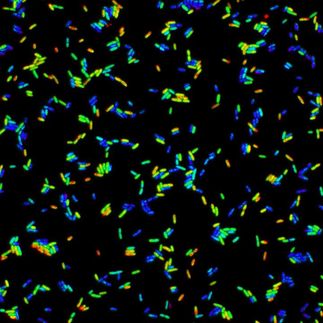Basilea's antibiotic BAL30072 shows activity against superbugs expressing the NDM-1 resistance factor
Advertisement
New research data on Basilea's antibacterial compounds was presented in Milan, Italy, at the European Congress of Clinical Microbiology and Infectious Disease (ECCMID) and the International Congress of Chemotherapy (ICC) joint meeting. Basilea's novel antibiotic BAL30072 was shown to be active against multidrug-resistant Gram-negative bacteria that express the NDM-1 resistance factor.
Multidrug-resistant Gram-negative pathogens are appearing with increasing frequency in hospitals around the world and have been associated with prolonged hospital stays, higher healthcare costs and increased mortality.
Recently, Gram-negative bacteria that harbour the so-called New Delhi metallo-beta-lactamase 1 (NDM-1) alongside with several other resistance mechanisms have triggered increased medical concern. NDM-1 is an enzyme that leads to resistance towards antibiotics that have been the mainstay of treatment of clinically important pathogens such as Escherichia coli or Klebsiella pneumoniae. These bacteria may cause systemic infections including severe lung and complicated urinary tract infections. Bacteria expressing NDM-1 were discovered only recently but are now being observed with increasing frequency in many countries all over the world. BAL30072, a novel sulfactam antibiotic currently in phase I clinical testing
In-vitro data presented at ECCMID/ICC show for the first time that BAL30072 is active against multidrug-resistant clinical isolates of Gram-negative bacteria harbouring NDM-1. BAL30072 is resistant to degradation by NDM-1 and was therefore active, at clinically achievable concentrations, against many of the highly resistant isolates tested while standard anti-Gram-negative antibiotics such as meropenem, ceftazidime or aztreonam covered only a minority of the strains. BAL30072 and meropenem combined had enhanced activity and resulted in inhibition of more than 90% of the isolates.
Also at ECCMID/ICC, in-vitro data was presented that demonstrated the potent activity of BAL30072 against meropenem-resistant strains of Acinetobacter baumannii, a clinically important Gram-negative pathogen in hospital-acquired pneumonia, for which only few therapeutic options exist. BAL30072 was tested alongside reference drugs currently used for the treatment of Acinetobacter infections and showed greater activity than all the marketed beta-lactam antibiotics as well as most of the other comparators.
The new data confirm the therapeutic potential of Basilea's phase I compound BAL30072. The drug shows potent activity against a broad range of multidrug-resistant Gram-negative bacteria, including those harbouring NDM-1, and may offer a future treatment option for potentially life-threatening Gram-negative infections where currently only limited therapeutic options exist.



























































